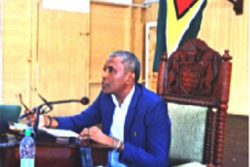With issues having arisen over alleged prejudice in the allocation of Covid-19 vaccinations between rich and poor countries, the heads of three of the world’s foremost international organizations, the World Health Organization (WHO), the World Bank Group, and the World Trade Organization (WTO), have issued a call for a collective plan to vaccinate the world.
Earlier this year, the Ethiopian Director of the WHO, Dr Tedros Adhanom Ghebreyesus shone a dramatic spotlight on the issue, openly charging that poor countries were being badly left behind in the global vaccine distribution programme. With First World countries facing accusations of stockpiling Covid-19 vaccines even as poor countries were not being granted enough to cater to their immediate-term needs, the issue had become an awkward talking point amidst what was being touted as a collective effort to roll back the pandemic.
The issue of the disparity in the distribution of vaccinations was scheduled to return to the top of the global Covid-19 agenda as IMF Managing Director Kristalina Georgieva joined Ghebreyesus, World Bank Group President David Malpass, and WTO Director-General Ngozi Okonjo-Iweala in an effort to try to focus global attention on a coordinated plan to vaccinate the world.
A June 4 IMF Brief alludes to a “recent proposal from IMF staff” which it says “puts forward a plan with clear targets, pragmatic actions, and at a feasible cost” for ensuring a more equitable distribution of Covid-19 vaccinations. The initiative, the IMF Brief says, “builds on and supports the ongoing work of WHO, its partners in the Access to COVID-19 Tools (ACT) Accelerator initiative and its global vaccine access program COVAX, as well as the work of the World Bank Group, the WTO and many others.”
Setting the estimated cost of this initiative at US$50 billion the Brief says that it is targeted to “bring the pandemic to an end faster in the developing world, reduce infections and loss of lives, accelerate the economic recovery, and generate some $9 trillion in additional global output by 2025.”
Each of the organisations has been assigned specific and separate responsibilities in pursuit of the realisation of these objectives. The IMF, the brief says, has been assigned the task of “preparing a… Special Drawing Rights (SDR) allocation to boost the reserves and liquidity of its members,” while the WHO is “seeking to identify financing so that the urgent needs of its Strategic Preparedness and Response Plan and the ACT-Accelerator partnership can be met.” The World Bank, meanwhile, has assigned itself to “have vaccine projects up and running in at least 50 countries by mid-year,” while the International Finance Corporation (IFC), a member of the World Bank Group, will be “working to mobilize the private sector to boost vaccine supply for developing countries,” and the WTO will be working on “freeing up supply chains for the plan to succeed.”
The IMF says that the Brief puts forward a plan with clear targets, pragmatic actions, and at a feasible cost. It builds on and supports the ongoing work of the WHO, its partners in the Access to COVID-19 Tools (ACT) Accelerator initiative and its global vaccine access programme COVAX, as well as the work of the World Bank Group, the WTO and many others. At an estimated $50 billion, it will bring the pandemic to an end faster in the developing world, reduce infections and loss of lives, accelerate the economic recovery, and generate some $9 trillion in additional global output by 2025, the Brief declared.







